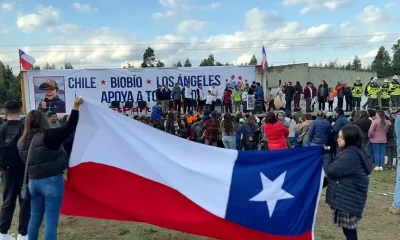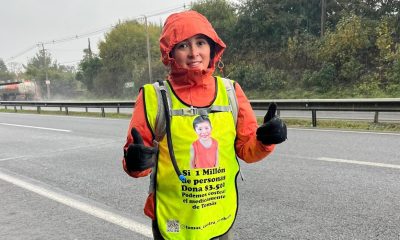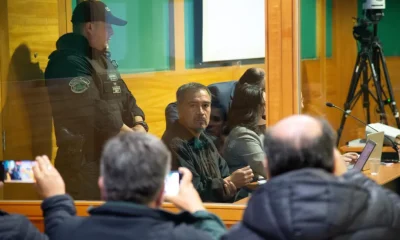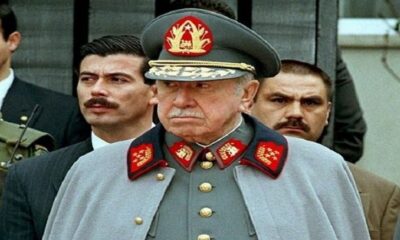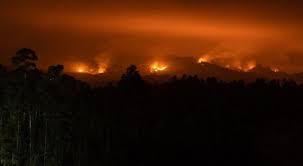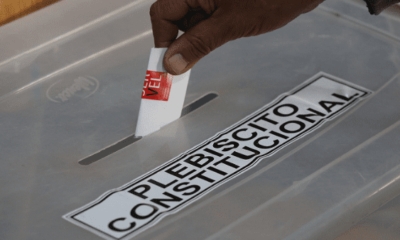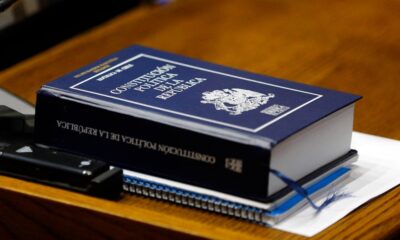International
How did the events of the coup d’état take place in Chile?
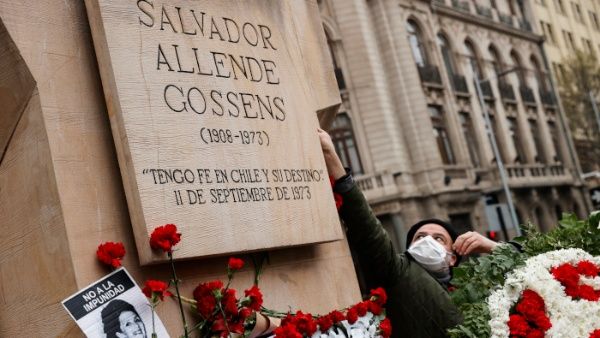
September 11 |
On September 11, 1973, General Augusto Pinochet led a coup d’état against the president of Chile, Salvador Allende, which ended the Popular Unity Government and began a military dictatorship that would leave nearly 40,000 victims during 17 years.
Pinochet, who three weeks earlier had been appointed by Allende as commander in chief of the Army, interrupted Allende’s democratic government, which had been elected in 1970, and established one of the cruelest and most terrible periods in the history of the South American nation.
In the same way, the military put an end to the experience of a socialist government that had emerged through the electoral process and sought to redefine the role of the State through agrarian reform, nationalizations, expropriation of the banks and greater promotion of education.
It was Allende himself who announced the military mobilization. Informed of the Navy’s uprising, Allende arrived at 07:30 local time on September 11 at La Moneda Palace.
Hours earlier, Navy ships had entered the port of Valparaíso, some 115 kilometers west of Santiago, and its troops occupied streets and government buildings.
President Allende, in a broadcast on Radio Corporación, asked citizens to remain calm and to stay in their workplaces, while affirming that he would remain at his post.
At 08:30 hours, the Armed Forces and Carabineros, who bombed and raided the installations of the media supporting the Popular Unity, demanded Allende’s resignation.
The president, in another radio communication, told the military that he would not resign and that he would not abandon La Moneda palace. “I point out my will to resist with whatever it takes, at the cost of my life,” he asserted.
In his last message to Chileans, broadcast on Radio Magallanes, Allende -aware of the imminent aerial bombardment of the Moneda Palace- said: “I will not resign. I will pay with my life for the loyalty of the people (…) they have the strength, they can subjugate, but social processes are not stopped neither with crime nor with force. History is ours and it is made by the people”.
An aide offered him an Air Force plane to leave Chile. Allende rejected the proposal and proposed a dialogue with the commanders-in-chief under certain conditions. However, Pinochet did not accept and demanded the unconditional resignation of the president.
Prior to the bombing of La Moneda, the president demanded a truce so that 11 women, including his daughter Beatriz, who were in the Executive headquarters, could leave.
At 11:50 a.m., the Hawker Hunter planes of Group 7 of the Chilean Air Force began the bombing that lasted 15 minutes. As a consequence, the government building was partially burned.
After 1:00 p.m., Allende, carrying a rifle and wearing a helmet, ordered the surrender and departure of those who were still accompanying him.
After that – based on a 2012 judicial investigation – Allende entered the Independence Hall, where “he sat down on a sofa, placed the rifle he was carrying between his legs and resting it on his chin, he fired it, dying instantly”.
The Military Junta, headed by Pinochet, took over the Executive and Judicial powers on September 11, and ordered the recess of Congress, establishing a 17-year military dictatorship that left at least 40,000 victims, among them 3,000 murdered or disappeared.
International
DHS Secretary Kristi Noem’s Purse Stolen in D.C. Restaurant Heist

The purse of Kristi Noem, Secretary of the Department of Homeland Security, was stolen on Sunday night at a restaurant in Washington, D.C., Fox News Digital confirmed through several agency sources.
The handbag, taken by a white male wearing a mask, reportedly contained $3,000 in cash along with personal documents, including her passport, keys, driver’s license, and DHS badge, according to an agency spokesperson.
“Her entire family was in town, including her children and grandchildren. She was celebrating her retirement by treating them to dinner, activities, and Easter gifts,” the spokesperson added.
Crime continues to be a significant issue in the U.S. capital, particularly theft. However, violent crime reached its lowest level in 30 years last year, according to the Office of the Attorney General at the time.
International
Pope Francis: The Quiet Architect Behind the U.S.-Cuba Thaw
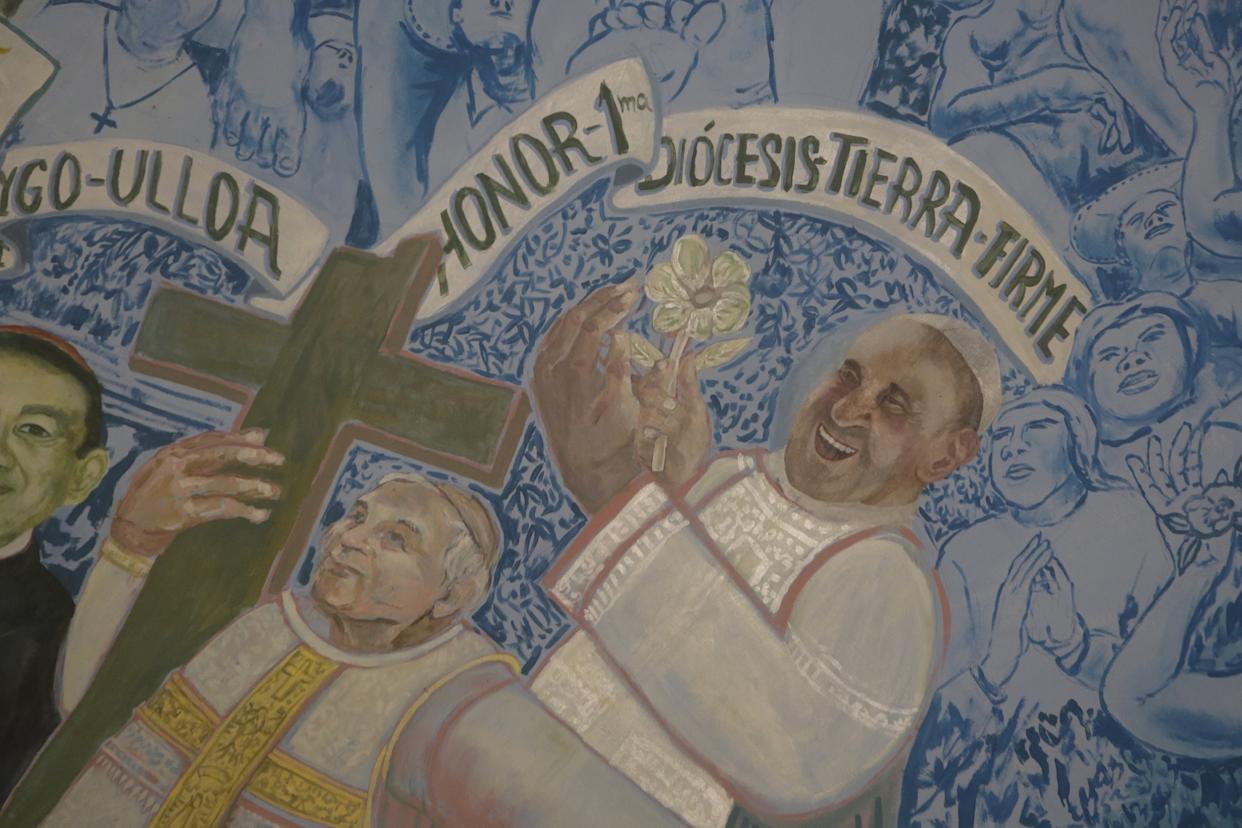
When then-U.S. President Barack Obama and Cuban President Raúl Castro announced the reestablishment of diplomatic relations in December 2014—after decades of hostility—there was a third figure present in both speeches: Pope Francis.
This thaw in U.S.-Cuba relations—later reversed by Donald Trump—was the result of behind-the-scenes negotiations personally encouraged by Pope Francis, who passed away on Monday at the age of 88, just over a year after becoming head of the Catholic Church.
Upon learning the news of the breakthrough, the pontiff humbly stated, “This was made possible thanks to the ambassadors and to diplomacy,” which he called “a noble, very noble job.”
In 2015, months after the announcement, Raúl Castro visited the Vatican and met with the pope. Over time, Castro developed a fondness for Francis that he never had for his predecessors, Benedict XVI and John Paul II. “If the Pope continues talking like this, sooner or later I’ll start praying again and return to the Catholic Church—and I’m not joking,” said the younger Castro, who, like his brother Fidel (1926–2016), had been educated by Jesuits—the same order to which Pope Francis belonged.
Pope Francis visited Cuba later that year. Just days before his arrival, the Cuban government announced the pardon of 3,522 common prisoners as an act of clemency.
While in Havana, the pope met with Fidel Castro, who gave him a first edition of the book Fidel and Religion by Brazilian friar and liberation theologian Frei Betto.
Criticism from the Opposition
Francis’s diplomatic approach also drew criticism from parts of the Cuban opposition. In a 2022 interview with Univision, the pope revealed he had “a human relationship” with Raúl Castro.
International
Dominican Republic Declares Three Days of Mourning for Pope Francis

Dominican Republic President Luis Abinader has declared three days of national mourning starting Tuesday following the death of Pope Francis, who passed away on Monday at the age of 88 in his residence at the Casa Santa Marta.
In an official decree, Abinader highlighted the pope’s legacy “as a global leader who promoted significant reforms within the Catholic Church and was known for his humility, openness to dialogue, and commitment to peace among nations.”
During the mourning period, the national flag will be flown at half-staff at military facilities and public buildings.
According to a statement from the Office of the Presidency, although Pope Francis never visited the Dominican Republic during his papacy, he maintained a close relationship with the country. He expressed solidarity and empathy during difficult times, including offering prayers for the victims of the recent tragedy at a Santo Domingo nightclub on April 8, which claimed 232 lives and left more than 180 injured.
-

 Central America4 days ago
Central America4 days agoNicaraguan Exiles to Mark 7th Anniversary of 2018 Protests with Global Commemorations
-

 International4 days ago
International4 days agoDominican ‘False Hero’ Arrested for Faking Role in Nightclub Collapse That Killed 231
-

 International3 days ago
International3 days agoACLU seeks emergency court order to stop venezuelan deportations under Wartime Law
-

 Central America3 days ago
Central America3 days agoUN complaint filed against Costa Rica over detention of migrant children
-

 International2 days ago
International2 days agoThousands rally nationwide against Trump’s threat to U.S. democracy
-

 Central America1 day ago
Central America1 day agoSenator Van Hollen Meets with Deported MS-13 Member in El Salvador; Trump and Bukele React
-

 International1 day ago
International1 day agoPope Francis Appears for Easter Blessing, Calls for Peace and Religious Freedom
-

 Central America5 hours ago
Central America5 hours agoCardinal Rodríguez to Attend Funeral of Pope Francis: “He Was Very Dear to Me”
-

 International5 hours ago
International5 hours agoDominican Republic Declares Three Days of Mourning for Pope Francis
-

 Central America5 hours ago
Central America5 hours agoNicaragua’s Ortega and Murillo Mourn Pope Francis, Acknowledge ‘Difficult’ Relationship
-

 International5 hours ago
International5 hours agoDHS Secretary Kristi Noem’s Purse Stolen in D.C. Restaurant Heist
-

 International5 hours ago
International5 hours agoPope Francis: The Quiet Architect Behind the U.S.-Cuba Thaw
















